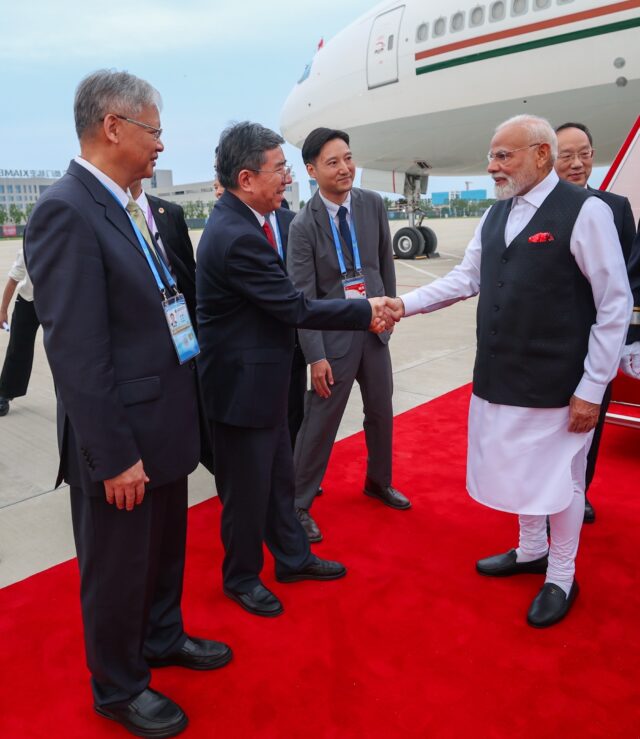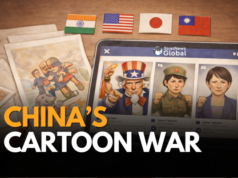Prime Minister Modi goes into the SCO summit on Sunday on the back of a successful Japan visit, buoyed by expressions of strong political support, $69 billion of investment committed over the next decade and a clutch of agreements covering semiconductors, scientific cooperation including in clean energy, critical minerals and so on.
But the SCO is a different kettle of fish: recall Modi has missed for whatever reason, no less than two summits. Defence Minister Rajnath Singh refused to sign the SCO declaration in Qingdao, China just two months ago, because it did not address concerns about Pakistan-sponsored terrorism.
There’s also the fact that Pakistan-sponsored terrorism is less of an issue with some of the other SCO members, such as the Central Asian states and even Russia. Their concerns focus on Afghanistan where the Taliban, a terrorist entity rules and which provides sanctuary to a host of other terror outfits that threaten them.
China Factor
Then there’s China, arguably the dominant country in the SCO. Ties with Beijing are beginning to improve after a long period of freeze following the Galwan clash, but as Gautam Bambawale, former ambassador to China notes in an editorial in The Times of India:
“The situation on the India China border has quietened with disengagement of troops from front line positions, but there has not been any de-escalation of troops and return to their peacetime locations.”
The Chinese are well aware that India is under pressure on multiple fronts: the tariff war unleashed by Trump has cast a shadow over the India-US relationship. The US-Pakistan relationship appears to be on the upswing. Operation Sindoor brought home China’s tactical support for Pakistani attacks on India.
Add to that the ballooning trade deficit and China blocking the export of rare earth magnets and even fertiliser to India. It remains to be seen how these and other issues are addressed during Modi’s talks with Xi Jinping.
Russian Comfort?
Even the hallowed relationship with Russia is no longer what it is. The sense is India thinks of Russia only when it is in trouble and needs comfort.
“I think over the past several decades we have developed a certain level of trust and comfort with first the Soviet Union and its successor Russia,” says Nandan Unnikrishnan, head of the Russia studies programme at the ORF. “And therefore it is only natural that in times of trouble, we share our concerns and hear what they say.”
But Russia is no longer the Soviet Union, the Ukraine war has made it perhaps more dependent on China, and therefore it is going to be more neutral than in the past. Unnikrishnan believes that if Russia thinks India sees a need for it, the push for deeper ties with China may be that much less.
But Russia’s elites are divided. There is a strong lobby of politicians, businessmen and bureaucracy that see China as the future. Another lobby sees Russia’s future with the West and were it not for the Ukraine war, that is the direction it would have headed.
There is a third lobby to which President Putin belongs, that sees Russia as a great power which can contribute to the global order and is happy to engage with India and China.
This is the backdrop to the SCO summit, so don’t be fooled by the smiles and public displays of bonhomie on Sunday. There are competing national interests at stake, trust deficits to be overcome and hard negotiations ahead.
Thirty eight years in journalism, widely travelled, history buff with a preference for Old Monk Rum. Current interest/focus spans China, Technology and Trade. Recent reads: Steven Colls Directorate S and Alexander Frater's Chasing the Monsoon. Netflix/Prime video junkie. Loves animal videos on Facebook. Reluctant tweeter.





